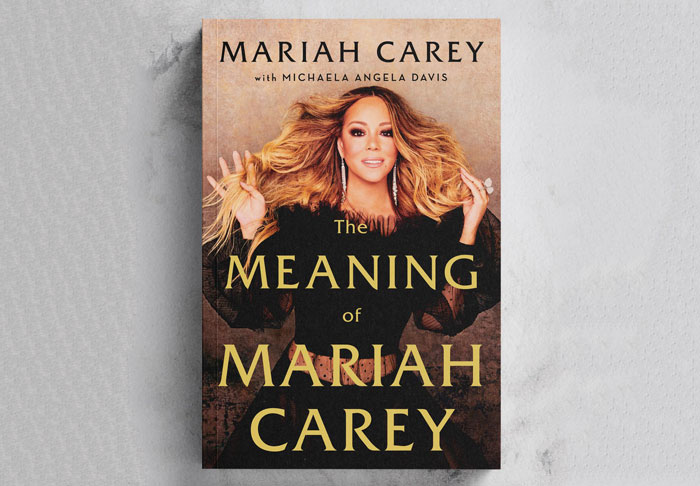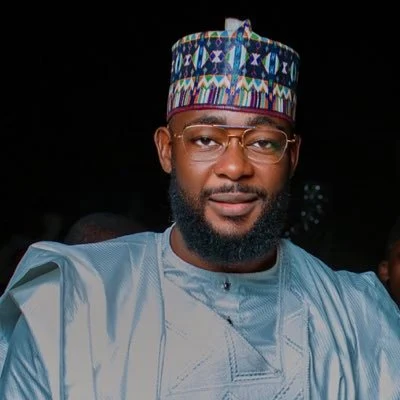Global icon, award-winning singer, songwriter, producer, actress and now author, Mariah Carey, has finally told the unfiltered story of her life in he
Global icon, award-winning singer, songwriter, producer, actress and now author, Mariah Carey, has finally told the unfiltered story of her life in her memoir, ‘The Meaning of Mariah Carey’.
“It took me a lifetime to have the courage and the clarity to write my memoir. I want to tell the story of the moments – the ups and downs, the triumphs and traumas, the debacles and the dreams, that contributed to the person I am today.
“Though there have been countless stories about me throughout my career and very public personal life, it’s been impossible to communicate the complexities and depths of my experience in any single magazine article or a ten-minute television interview. And even then, my words were filtered through someone else’s lens, largely satisfying someone else’s assignment to define me.”
According to her, the book is composed of her memories, her mishaps, abuse, infidelity, racism, struggles, survival and her songs, all unfiltered.
“I went deep into my childhood and gave the scared little girl inside of me a big voice. I let the abandoned and ambitious adolescent have her say, and the betrayed and triumphant woman I became tell her side.”
Here are four take aways from the book:
- Witnessing domestic violence against her mother. She recalls numerous physical altercations, including her brother slamming her mother into a wall with such force, it sounded “like an actual gunshot.” Carey, then 6, called a family friend — “‘My brother really hurt my mother, and I’m home alone. Please come help.’” — who called the police. When they arrived, “One of the cops, looking down at me but speaking to another cop beside him, said, ‘If this kid makes it, it’ll be a miracle.’ And that night, I became less of a kid and more of a miracle.”
- Experienced racism and colorism from a young age. When she was 4, Carey used a brown crayon to color her father, who is Black, for a family portrait. She remembers a trio of teachers “cackling hysterically,” insisting she’d used the wrong shade.
“They had only ever seen one member of my family of five: my mother, who dropped me off at school each day,” Carey writes. “They had no idea and no imagination to suspect that the light toast of my skin, my bigger-than-button nose and the waves and ringlets in my hair were from my father.”Her mother was estranged from her own parents, who didn’t approve of their daughter’s marriage. Eventually Carey’s grandmother allowed her mother to visit — but only with Carey. “I was a 12-year-old little girl and didn’t quite understand why she only invited me,” she writes. “Looking back, I suspect it was because I was blond-ish and very fair for a mixed kid.”3. She feels like ‘an A.T.M. with a wig on.’ As soon as Carey became a household name, her siblings and mother started treating her like “an A.T.M. with a wig on.” She said that when she got exhausted and sought refuge at the cabin she’d purchased for her mother, her mother called the police. “She gave them an odd, knowing look,” Carey writes, “which felt like the equivalent of a secret-society handshake, some sort of white-woman-in-distress cop mode.” Soon after, her brother abandoned her at a “spa” that turned out to be “closer to a prison” — and then at a detox facility. Later, Carey realized that her family “just happened to claim I was unstable and try to institutionalize me immediately after I had signed the biggest cash deal for a solo artist in history.4. Her first marriage was abusive and manipulative and she slept near a ‘to go’ bag during her first marriage. to Sony Music president, Tony Mottola who was 21 years her senior. He wooed her with Gund teddy bears, then persuaded her to marry him (“I prayed that in doing so he would calm down and loosen his vise grip on my life”). As she describes it, “There was never really a strong sexual or physical attraction” but “I gave him my work and my trust.” Carey said she slept with a “to go” bag under her bed, “filled with essentials just in case I had to make a quick escape.”The couple’s 50-acre compound in Bedford, N.Y. was “fully staffed with armed guards” in addition to the security cameras installed in most rooms. (Carey refers to the place as “Sing Sing,” after the nearby maximum-security prison.) When she went to the kitchen to write lyrics, “‘Watcha doin?’ would crackle through the speaker.”
Mottola controlled everything, from the music they listened to — “What a tragic metaphor, listening to Tommy hum ‘My Way’ as he drove us back to my captivity” — to the music she created. He wanted Carey to sound “mainstream (meaning white).” She writes, “From the moment Tommy signed me, he tried to wash the ‘urban’ (translation: Black) off of me.” Finally, after Mottola held a butter knife to her face and dragged it down her cheek, she knew the time had come to “emancipate” herself from his clutches.


